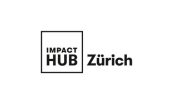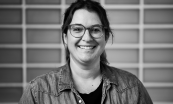
December 2016
MashUp #NoPoverty & #ZeroHunger: Battling for improved lives with education and innovation in agriculture
If you missed the Mash Up, here is a quick recap. It was the fifth installment in what’s becoming a long line of excellent events. Previous events addressed the topics of #OpenData, #Tech4Good, #SustainableFood and #SustainableCities&Communities. This Mash Up, hosted by Anja Schaerer, was held on Tuesday, November 29, 2016 which also happened to be global #GivingTuesday. It was the first time we partnered with the United Nations for the Mash Up event. Very exciting!
We were joined this time by eleven other Impact Hubs from around the world and were able to live chat with participating members using the Myia app. There was one globally live-streamed speaker and two locals who focused on the problems of poverty and hunger, the goals Nr 1 & 2 of the UN's Sustainable Development Goals. They provided valuable insight and solutions. All the impressions and stories of the night were collected with the hashtag #impacthubmashup on a tagboard.
And now for the speeches that were presented in the fast paced PechaKucha format:
Moving Forward on the SDG’s: Boaz Paldi, Global Engagement Manager at UNDP (Digital Super Speaker Live-Stream)
The UN came up with the Sustainable Development Goals (SDGs). These are 17 interconnected, holistic goals that are necessary to make the world a better place with sustainability in mind. It is important that everyone and all nations participate in moving forward with these goals. Many things like infrastructure and access to clean water affect poverty and hunger. That’s why the universal approach is so important in tackling root causes, for long term solutions. There have already been some amazing results: For example, between 1990 and 2010 global poverty has been cut in half.
It’s very important that we all take ownership of this. It is not up to the United Nations to work on these goals alone.
Giving Tuesday, a global day of giving to kick off the charitable season, is growing very quickly globally. Even the poorest and most disenfranchised are participating and giving in any way they can.
Boaz Paldi's message is clear: "We must live with hope!" And this message needs to get out. Large commitments to things like the Paris Agreement are necessary and have the power to create great change. In addition, specific local needs also have to be addressed in each country. One more aspect is the participation of the private sector and investment funding, which has a huge role to play and is very important. Some large companies are already working very hard to reach the SDG’s. But you can join the fight too.
Access to Higher Education: Tom Hofer from Aiducation International
What is the need? Each year 40,000,000 “high potentials” have no access to secondary education! What is being done about this? Aiducation activities are based upon promoting two principles. The first is education, which is the most important leveraging component for personal development. The second is being an active citizen, because active citizens are the most important ingredient for bringing about positive economic, political and social development in a country.
Students in developing countries often suffer from a lack of access to High School and University level education. Aiducation makes it possible for students with a high potential to access high quality education, through the use of scholarships and loans. In addition, access to training, mentoring and networking is providing greater opportunities.
We are a charity but we sell human potential. I am personally convinced that Aiducation International offers its donors the highest impact-per-money ratio out there!
It’s a one-to-one program where each person sponsors one child. Every sponsor can have a buddy and build a relationship. We enable the most able. There is a great deal of vetting that goes into maximizing the potential of the program. Every year the scholars submit progress reports to monitor quality and success. At least 80% are successfully going to school. The money goes straight to the school.
There are 3 pillars of Aiducation funding: The first, AiduPartners, is made up of partners for growth, projects and operations. The second pillar, AiduMakers, consists of the donors that sponsor individual scholarships. The third, AiduFriends, provide support through annual membership fees.
Two hundred scholarships a year are given. There are corporate sponsors but scaling up is still difficult. It’s important to find new, additional partners. One “flaw” that Tom Hofer admits is in their business plan: 90% of the money goes straight to the school, meaning the team's operations runs on a very small budget. But this was a conscious decision - it's simply part of their reality.
Increasing Agricultural Production: Samuel Thomas Ledermann from Biovision
Norman Borlaug was the father of the green revolution. He is credited with saving a billion lives. Biovision is trying to continue this. They aim to help reach the SDGs by spreading agricultural methods that are scientifically sound, knowledge-intensive and ecological. One example of their work is a magazine call “The Organic Farmer” that has a readership among farmers in the hundreds of thousands. Donations are needed for the magazine but the knowledge gained can be spread from farmer to farmer and even from village to village.
There are a couple of challenges: This type of farming is very labor intensive as there are no easy fixes like spraying a lot of dangerous chemical pesticides. This is normally not a problem because of the high level of unemployment. However, it this case one has to be careful because frequently women bare the brunt of the labor.
We are not only focusing on poverty and hungry, but also inequality. With the right knowledge, farmers can pass down their knowledge from generation to generation.
Additionally, the Push-Pull method of crop rotation is very important, one crop to push the main pest away and another crop to trap it. It has been very successful and has doubled the yields of 133,000 farmers across eastern Africa. The method has also helped to diversify nutrition.
Biovision is trying to tackle the problems of financing and private markets that create dependencies on seed companies. Their knowledge-intensive agriculture has the potential to also make a strong impact on inequality. By not being capital intensive, it can allow the poorest of the poor to move out of poverty. When working on the local level, they want to connect the farmers to the national level and even the international level. It is very import that farmers are able to remain adaptable, especially with the current and future effects of climate change - that's why a holistic approach is needed. One example is promoting bee keeping, which simultaneously addresses poverty and improves the overall ecosystem.
The world's focus on the SDGs is increasing and by enabling these ventures to solve Goal 1, to end poverty in all its manifestations, and Goal 2, to end hunger and all forms of malnutrition, we as Impact Hub Zürich are doing our part. What are you doing? Get inspired by these talks and start doing!
We look forward to seeing you at our next Mash Up event in 2017!
Subscribe to Our Newsletter
Never miss an update – sign up for our newsletter published every 3-4 weeks and stay connected with our community.


